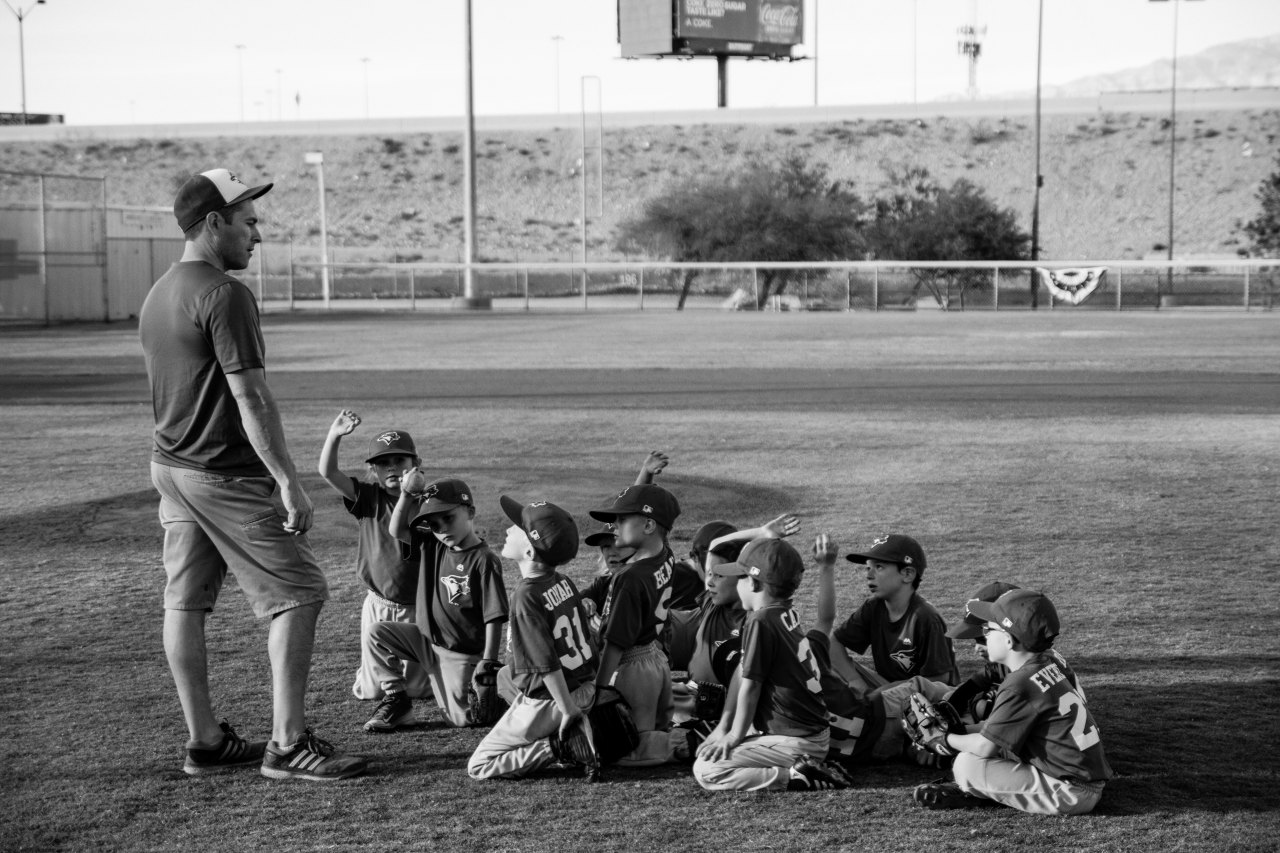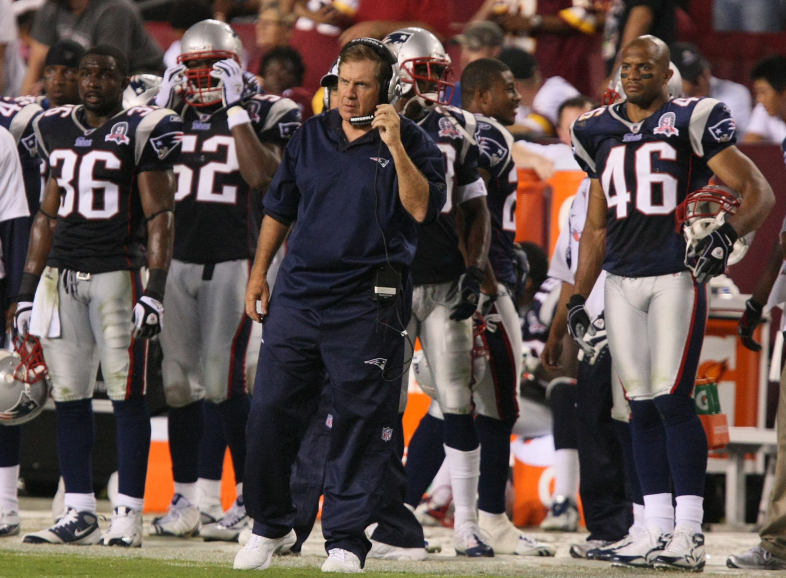
21 Life Lessons Learned From Some Of The World’s Greatest Sports Coaches
Sports embody the best and the worst of life—our competitive urges, teamwork, grace under pressure, realizing our potential, the agony of defeat.
By ![]() Ryan Holiday
Ryan Holiday

For people who don’t play or like sports, sports metaphors are frustrating, obnoxious or cliche. Of course, they think this at their loss. Even the ancient philosophers from Seneca to Epictetus to Socrates loved to reference sports. Wrestling, gymnastics, boxing, running—you can’t crack an ancient text and not find them connecting philosophy to metaphors about sparring, about competing in the Olympics, and training and winning and losing.
They do this because sports then, as now, were a part of life. Also because they embody the best and the worst of life—our competitive urges, teamwork, grace under pressure, realizing our potential, the agony of defeat. It’s why I love books written by great coaches—they have so much to teach us, not only about the game but about life itself.
What follows are some of my favorite principles from some of the greatest coaches of all time—from Wooden to Belichick, from Carroll to Phil Jackson. Whether you ever pick up a football or grapple or play a competitive sport of any kind, these lessons will improve your life. They’ll make you better at business, at stressful situations, at tackling tough problems and at finding motivation.
Hope you like them.
[*] Do the Grunt Work In Education of a Coach you can see how Bill Belichick, the now four-time Super Bowl-winning coach of the New England Patriots, made his way up the ranks of the NFL by loving and mastering how to do the one thing that coaches hated at the time: analyzing film. Doing so he helped make his superiors look good—an approach I call “The Canvas Strategy”—and in the process gave himself an understanding of the game that today cannot be matched. Do the grunt work and learn from Belichick.
[*] Have a Philosophy Seahawks coach Pete Carroll is known for his ‘Win Forever’ philosophy—the winning mindset he aims to instill in his staff and players. Similarly, coach Wooden has his own ‘Pyramid of Success.’ (In fact, Pete Carroll was inspired by Wooden to create his own philosophy of winning.) These philosophies and frameworks are critical as they codify the principles and rules by which a team will make decisions and operate on a day-to-day basis. If you don’t have a philosophy, how do you expect to know what to do in tough situations? Or when things are confusing or complicated? Being reactive is never a position of strength.
[*] Focus On Your Inner Scorecard Famous basketball coach John Wooden defined success in the following way: “Success is peace of mind, which is a direct result of self satisfaction in knowing you made the effort to do your best to become the best that you are capable of becoming.” Notice he didn’t say anything about the score of the game. Doing your best is what matters. Focus on that. External rewards are just extra. And Warren Buffett has said the same thing, making a distinction between the inner scorecard and the external one. Your potential, the absolute best you’re capable of—that’s the metric to measure yourself against.
[*] Set High Standards & Observe Them Football coach Bill Walsh took the 49ers from the worst team in the league to Super Bowl champions in just three years. How? He created a culture of excellence and instilled what he called his “Standard of Performance.” That is: How to practice. How to dress. How to hold the ball. Where to be on a play down to the very inch. Which skills mattered for each position. He knew that by upholding these standards, “the score would take care of itself.”
[*] Do Your Job Speaking of Bill Belichick, consistently remind yourself of his simple mantra: “Do your job.”
[*] Inoculate Against The ‘Disease of Me’ Pat Riley, one of the greatest NBA coaches, has observed that once teams start winning consistently, they enter a phase called the ‘Disease of Me’—the moment when chests swell and egos emerge. To give a basketball example, it’s Shaq and Kobe, unable to play together. It’s Michael Jordan punching his teammates. Once we’ve “made it,” our tendency is to switch to a mindset of “getting what’s mine.” Let’s make one thing clear: we never earn the right to be greedy or to pursue our interests at the expense of everyone else.
[*] Find Your Plus, Minus and Equal The MMA trainer Frank Shamrock works fighters through a system called +, -, =. Everyone needs to work with someone better than them, equal to them and someone who they can teach. Who are yours?
[*] Ignore The End Result, Focus on the Progress Football coach Nick Saban is known for teaching his players The Process. And the process is simple. It is about doing the right things, right now. We needn’t scramble like we’re so often inclined to do when some difficult task sits in front of us. The process is about not worrying about what might happen later, or the results, or the whole picture. It is simply this: focusing on the task at hand, forgetting everything else. He is essentially telling his players: Don’t think about winning the SEC Championship. Don’t think about the national championship. Think about what you needed to do in this drill, on this play, in this moment.
[*] Prepare For the Chaos This is how coach Phil Jackson’s describes one of his most effective tactics when he prepares his players: “Once I had the Bulls practice in silence; on another occasion I made them scrimmage with the lights out. Not because I want to make their lives miserable but because I want to prepare them for the inevitable chaos that occurs the minute they step onto a basketball court.” Chaos, both in sports and in life, is inevitable. Are you prepared? How can you practice in advance so it doesn’t catch you off guard?
[*] Take Small Steps Pat Riley: “Excellence is the gradual result of always striving to do better.” Notice that he says gradual. It’s about the small steps you can take each and every day to make a tiny bit of improvement. Your only point of comparison should be yourself the day before.
[*] Focus on the Journey Phil Jackson says that “…at the start of every season I always encouraged players to focus on the journey rather than the goal. What matters most is playing the game the right way and having the courage to grow, as human beings as well as basketball players. When you do that, the ring takes care of itself.” We can’t let ourselves live in a conditional future when things somehow will be okay. The present is all we have.
[*] Achieve Victory With Focus & Determination In any endeavour—in sports or in a creative field—the elite work comes from deep work. And deep work is that place of intense concentration and cognitive focus where real progress is made. It is why Pat Riley says that “There can only be one state of mind as you approach any profound test; total concentration, a spirit of togetherness, and strength.” That state of mind requires presence and focus. Nothing else would cut it.
[*] Set Rules for Yourself Coach Bill Walsh says that “like water, many decent individuals will seek lower ground if left to their own inclinations.” What we need to block these inclinations is rules. Little ones that we can follow to make us better. This is why relying on rules, constraints and systems is important.
[*] Prepare for Failure and Adversity Bill Walsh has said that “almost always, your road to victory goes through a place called ‘failure.’” There is no question, adversity is part of any journey. It is the ultimate test of character. As Pat Riley put it: “You have no choices about how you lose, but you do have a choice about how you come back and prepare to win again.”
[*] Stay Humble Keep in mind coach Wooden’s simple advice: “Talent is God-given. Be humble. Fame is man-given. Be grateful. Conceit is self-given. Be careful.” Of those, conceit is the most dangerous. Learning, progress and improvement all stop when you think you have figured it all out. This is your ego indulging in a narrative that is not true. Humility is the antidote.
[*] Play for the Name on the Front “You’re looking for players whose name on the front of the sweater is more important than the one on the back. I look for these players to play hard, to play smart, and to represent their country.” This is how the hockey coach Herb Brooks put it. Or if you prefer soccer coach Tony Adams’s version: “Play for the name on the front of the shirt and they’ll remember the name on the back.”
[*] Don’t Personalize the Outcome Bill Walsh describes the importance of not personalizing the outcome of our work as it can become crippling and paralyzing: “…any kind of loss becomes very disturbing because you’ve attached your self-image to the results of the competition. Winning can become insidious for the same reason, that is, you allow the victory to begin determining your self-worth, how you feel about yourself.” Again, you can’t let externals determine your self-worth. It is why Colin Powell advises to “avoid having your ego so close to your position that when your position falls, your ego goes with it.”
[*] Master the Details Coach Vince Lombardi allegedly began seasons by grabbing a ball, showing it to his players and saying, “Gentlemen, this is a football.” Coach Wooden is known for showing his players how to put on their socks. He goes into the details of it, even telling them to check around the toe and heel for any wrinkles. Why would he do that? Grown men surely know how to put on socks. His response: “You see, if there are wrinkles in your socks or your shoes aren’t tied properly, you will develop blisters. With blisters, you’ll miss practice. If you miss practice, you don’t play. And if you don’t play, we cannot win.” Mastering the details and all the fundamental elements is critical.
[*] You Are a Shareholder Bill Belichick in his 2013 keynote: “What I’ve always told our team, and what I thoroughly believe in, is that every member of our team – players, coaches, support staff and so forth – is a shareholder. They have a share in the team. Are they all exactly equal? Of course not, but they’re all shareholders.” Again, as Bill puts it, just do your job. Understand your role in the team, excel at it and as he says, “put the team first.”
[*] Don’t Be Passionate A young basketball player named Lewis Alcindor Jr., who won three national championships with John Wooden at UCLA, used one word to describe the style of his famous coach: “dispassionate.” As in not passionate. Wooden wasn’t about rah-rah speeches or inspiration. He saw those extra emotions as a burden. Instead, his philosophy was about being in control and doing your job and never being “passion’s slave.” The player who learned that lesson from Wooden would later change his name to one you remember better: Kareem Abdul-Jabbar.
[*] Do Your Job When Saints coach Sean Payton had to spend a year away from the Saints after the Bountygate scandal, he put a sign up in the training facility. It was a giant picture of his face and it had Bill Belichick’s line underneath: “Do Your Job.”
**
And finally, I couldn’t but end this piece with a line from the greatest (fictional) coach of all time: Clear eyes. Full hearts. Can’t lose. ![]()











